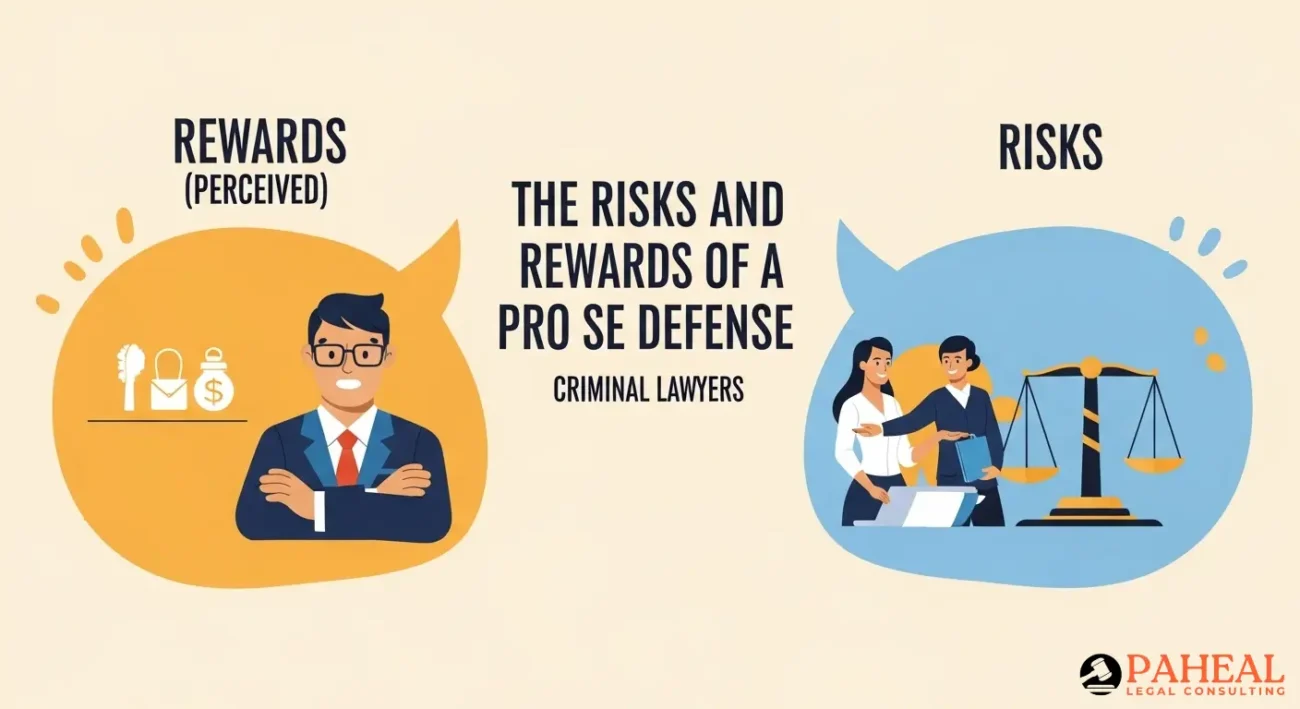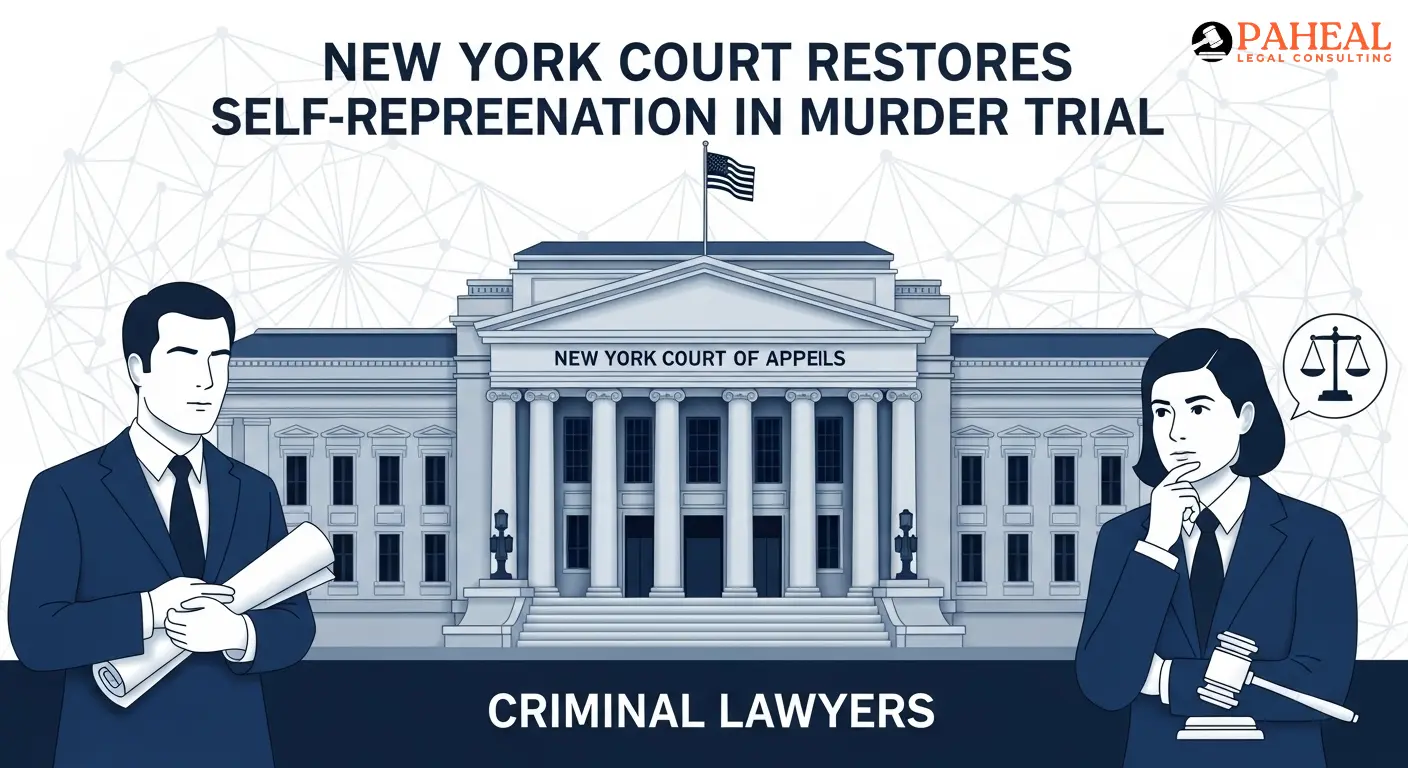The courtroom is a stage for high stakes drama, but few scenes are as gripping as a criminal lawyer choosing to represent themselves.
In the hallowed halls of New York’s legal system, a recent decision to restore a murder defendant’s right to self-representation has brought the fundamental Sixth Amendment right into sharp focus.
For the public and legal professionals alike, this raises critical questions about a defendant’s autonomy versus the state’s interest in a fair and orderly trial.
The Right to Self Representation and Its Limits
The Sixth Amendment to the U.S. Constitution guarantees a criminal defendant the right to counsel. However, in a landmark 1975 case, Faretta v. California, the U.S. Supreme Court established that this right includes the inverse the right to refuse counsel and represent oneself. The Faretta ruling affirmed that a defendant has a constitutional right to be their own lawyer, as long as the decision is made “knowingly and intelligently”.
This right is not absolute, especially in New York. State law and court precedent have established a delicate balance. A New York court will permit self-representation if the defendant is competent to stand trial and the waiver of counsel is “knowing and intelligent”. However, the U.S. Supreme Court’s 2008 decision in Indiana v. Edwards created a nuance, it held that states can impose a higher standard of competence for self representation than for standing trial, particularly for defendants with severe mental illness.
In New York, this has created a two-step process. First, a defendant must be found competent to stand trial. Second, the court conducts a thorough hearing often referred to as a “Faretta hearing” to determine if the defendant’s decision to waive counsel is fully informed and voluntary.
The Process of Restoring Self-Representation in New York
When a defendant wishes to proceed pro se (a Latin term meaning “for oneself”), a specific legal process unfolds. Here’s how it generally works in a New York murder trial:
- The Request: The defendant must make a clear and unequivocal request to the court to represent themselves. This is not a casual remark but a formal declaration that initiates the legal process.
- The Faretta Hearing: The judge holds a hearing to determine if the waiver of counsel is knowing, intelligent, and voluntary. During this crucial stage, the court will:
- Advise the Defendant: The judge must warn the defendant about the profound dangers and disadvantages of self-representation, especially in a murder trial, where the stakes are life and liberty.
- Assess the Defendant’s Understanding: The judge will question the defendant extensively to ensure they understand the charges, the range of possible penalties, the rules of evidence, trial procedures, and the tactical disadvantages of not having an attorney.
- Examine Mental Capacity: Following the guidance of Indiana v. Edwards, the court may consider the defendant’s mental capacity beyond the basic competence to stand trial, especially if there’s evidence of a severe mental illness.
- The Court’s Ruling: Based on the Faretta hearing, the judge decides whether to grant the request. If the court is not convinced that the defendant can competently represent themselves, it can deny the motion and appoint an attorney. In the case of the recently restored right, it appears the initial determination against self-representation was found to be in error.
- Standby Counsel: If the court grants the request, it may appoint “standby counsel.” This lawyer does not represent the defendant but remains available to offer legal advice and ensure the trial proceeds smoothly. Standby counsel’s presence is a crucial safeguard to prevent the process from collapsing due to the defendant’s lack of legal knowledge.
The Risks and Rewards of a Pro Se Defense

The decision to represent oneself in a murder trial is a gamble with potentially catastrophic consequences.
Risks:
- Procedural Pitfalls: Legal procedure is a labyrinth. Without a lawyer, a defendant is at high risk of making critical procedural mistakes, such as failing to file motions, improperly questioning witnesses, or misunderstanding rules of evidence.
- Emotional Compromise: An unrepresented defendant must manage their emotions while making critical, objective decisions. In a murder trial, where the defendant’s future hangs in the balance, this is an almost impossible task.
- Legal Expertise Gap: The prosecution will be represented by experienced, professional attorneys. A self-represented defendant, no matter how intelligent, cannot match the prosecutor’s knowledge of the law and trial strategy.
- Potential Self-Incrimination: A pro se defendant may inadvertently make incriminating statements or present a weak defense, unknowingly jeopardizing their case.
Rewards (Perceived):
- Full Control: For some, the main benefit is complete control over their defense strategy and evidence presentation.
- Cost Savings: While rarely the primary motivation in a murder case, avoiding legal fees can be a factor in less severe cases.
- Personalized Defense: A defendant may believe they can argue their case more compellingly or present a more “human” side than an attorney could.
The Takeaway
The restoration of this defendant’s right to self-representation underscores the deep respect for individual autonomy embedded in the U.S. legal system. While judges prefer not to have unrepresented defendants in serious felony cases like murder, the constitutional right to choose one’s own destiny in the courtroom is a bedrock principle. This case reminds the legal community that even when the decision seems ill-advised, the right to make that choice, provided it is knowing and intelligent, must be protected. The journey for this defendant—and the legal system navigating this complex process is only just beginning.

